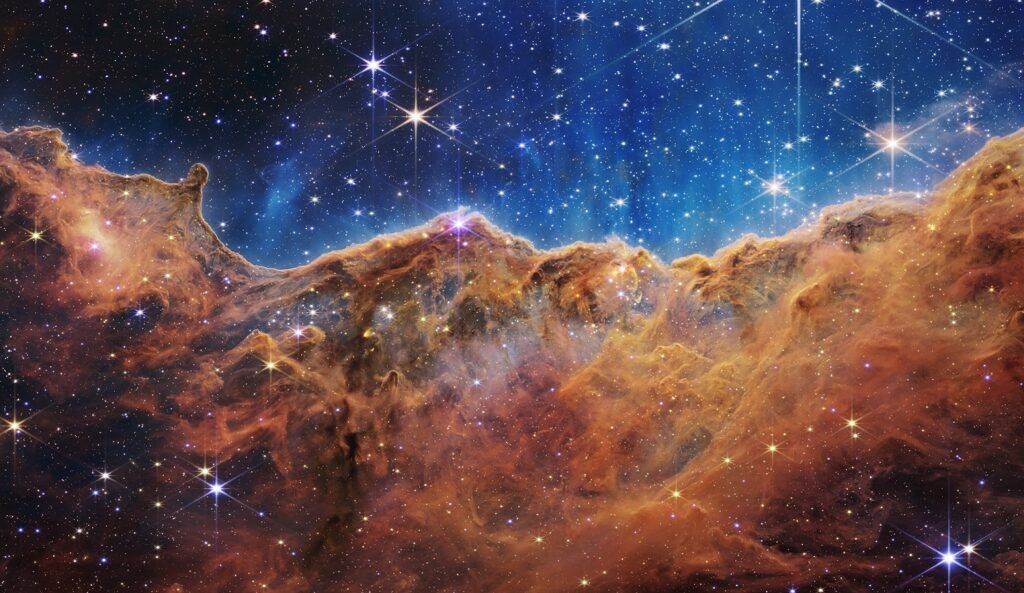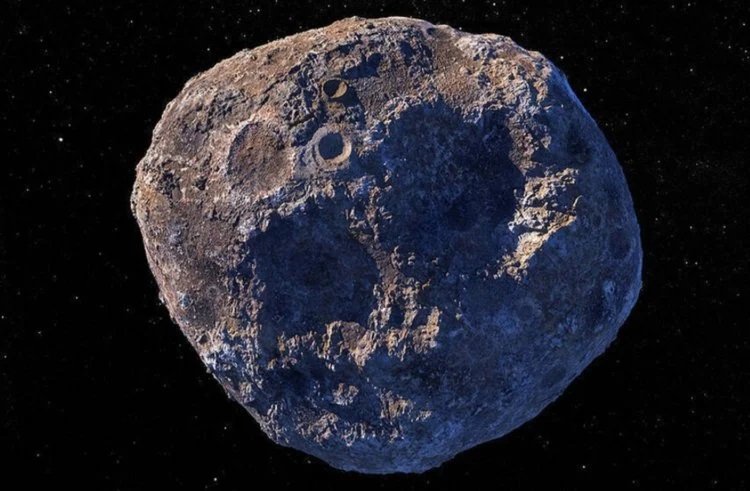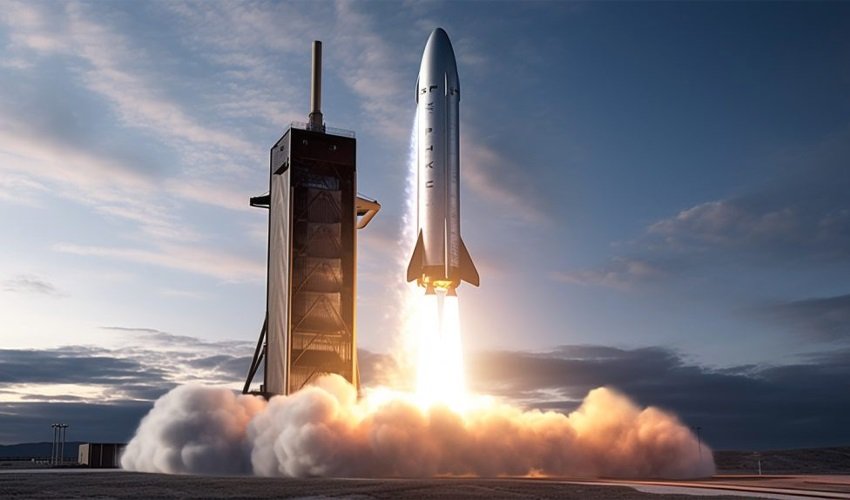Can we, looking at the starry sky, experience the same emotions as the Sumerians, the ancient Chinese, or medieval Europeans? Hardly.
Even if it’s pure admiration or superstitious awe, we can no longer forget the answers we know thanks to millennia of studying the cosmos — most of the time, these studies were conducted from here, from Earth. We understand how celestial bodies move, why day turns into night, and why spring follows winter. We remember what Copernicus was right about and why Giordano Bruno suffered. Many of us witnessed the launch of the first satellite and Gagarin’s flight, the beginning and peak of the “Space Race.” But how many are interested in what is happening now on the ISS, why the “James Webb” is needed, and what plans private space companies have? What we already know about the Universe is quite sufficient for the life of an ordinary modern person. So why continue to study space? Let’s explain.
A lot of money is spent on space: in 2023, the global space industry was estimated to be worth $400–450 billion. Meanwhile, here “down below,” there are still so many unresolved problems! What are we searching for on barren alien planets for years when we haven’t even figured out our own? “Humans don’t have the money to bring water to arid regions of Earth, but they have the money to search for water on Mars. After this, it’s worth asking: is there intelligence on Earth?” said futurist Jacque Fresco. And if we are so drawn to adventure, why not spend money and efforts on exploring the ocean or the earth’s depths? Why build ever new and new machines for dangerous, unpredictable journeys if we strive to live more ecologically? Perhaps it’s too early for us to rush into space, and we are not yet mature enough as a civilization?
There are answers to all these questions. For example, the costs of “space” are quite small compared to defense spending, yet being “armed to the teeth” on Earth, from which we currently have nowhere to go, still seems logical. The earth’s depths and oceanic depths are accessible for exploration only up to certain limits, after which they become no more hospitable for humans than other planets. Focusing solely on current problems and not thinking about the future is reckless because new times bring new challenges that we must prepare for, and new crises that we must overcome — solutions to which might lie beyond our comfort zone, that is, Earth. Finally, if we value life, why not use all its possibilities and seek other forms of it? We explore space not out of mere curiosity — more precisely, not only for that reason.

For Safety
Space exploration plays a critical role in ensuring the safety of Earth from various threats, including asteroid collisions. Approximately half a billion asteroids with a diameter of more than four meters are orbiting the Sun. Astronomers classify as “close approaches” all objects passing within 300,000 km of Earth. In 2022, there were 126 such close approaches. Predicting potentially hazardous close approaches, assessing the consequences of collisions, and altering asteroid trajectories have become possible thanks to space research. For example, in the fall of 2022, scientists crashed the DART kamikaze drone into the 160-meter asteroid Dimorphos to test methods of protecting against such threats.
For Resources
Space is also rich in valuable resources. The resource value in the asteroid belt between Jupiter and Mars is estimated at $100 billion per person on Earth. These celestial objects contain iron, nickel, magnesium, cobalt, titanium, precious and rare earth metals, minerals from which water, oxygen, and hydrogen can be extracted. In 2021, American scientists discovered that about 85% of the near-Earth asteroids 1986 DA and 2016 ED85 consist of various metals such as nickel, cobalt, platinum, and iron, which may be more abundant than on Earth.
The Moon, our closest neighbor, also holds reserves of iron, aluminum, titanium, and a lot of water, which is scarce on Earth, as well as the rare isotope helium-3, which could become an important resource for nuclear fusion energy in the future.
Thus, space exploration not only helps protect our planet from potential catastrophes but also opens up new opportunities for extracting valuable resources that can support and develop our economy and technologies.
For Cooperation
The most well-known example of cooperation in space is the International Space Station (ISS), involving 16 countries. By uniting efforts in space, we can share costs, create new jobs, and develop diplomatic relations on Earth. Moreover, collaboration in space enables synergy, unlocking even more possibilities for research.
For Survival
When a family keeps growing, their home becomes cramped. Everyone needs not only a sleeping spot and a shelf in the closet but also oxygen, bathroom time, and peace. No matter how much we optimize our space on Earth, new billions of people will make the planet feel even smaller. Even if we have enough space and resources, there will be more houses, more production, more consumption, and greater risks for wildlife. Sooner or later, we will need to look for a new home, another planet, not necessarily for living but for working (manufacturing something) or storing things (for example, waste).
For Technology
Many devices, materials, and technologies were initially developed for the defense industry and later found applications in everyday life. The same is true for space. Thanks to space exploration, we have satellite TV and internet, durable tires and reliable brakes, new navigation systems, freeze-dried food, nanofiber filters, air quality sensors, shock-absorbing soles, high-quality displays and cameras, cloud technologies, nitinol (used in orthodontic braces), and even Miramistin, which is used for various purposes. Space programs have also led to numerous medical innovations, such as MRI and CT scanners, hemodialysis and cardioangiography equipment, defibrillators, and new medications.
Currently, research on the ISS is focused on developing food supplements, heart and hearing aids, treatments for neurodegenerative diseases and HIV. In 2024, the ISS will test an autonomous robot for remote surgery.

Read also this interesting article: Europa Clipper: on a Mission to Search for Extraterrestrial Life
For Science
Fundamental science, which may not provide immediate practical benefits but is crucial for expanding our understanding of the universe. Such research can happen right before our eyes, yet its significance might not always be apparent to the layperson.
For instance, in 2015, an international team of scientists detected gravitational waves produced by the merger of two massive black holes (one 29 times and the other 36 times the mass of the Sun) 1.3 billion light-years from Earth. While nothing changed for us on that day, scientists gained a new way to observe the universe, a potential glimpse into the early moments of time, proof of the existence of black holes, and other valuable insights.

For Profit
Finding application in the economy, space technologies bring significant profit. Solar panels, initially developed for spacecraft, today have partially displaced hydrocarbons in the energy sector. The orbital telescope “Hubble,” created for scientific research, collected so much useful information in space that new data transmission technologies from orbit were required. These technologies have already found applications in the field of mobile telecommunications, causing an explosive growth in the industry. As we continue to explore space, people will create ever-newer technologies for data transmission, energy transformation, high-speed transportation, robotics, artificial intelligence, and more.

For Discovery
Homo sapiens were driven from the “cradle of civilization” by practical necessity: the need for food and shelter. The better they became at securing these, the more their thirst for knowledge tormented them: the desire to recall the past, explain the present, and predict the future — for safety, power, or simple curiosity. The exploration of space didn’t start with the first flight or even the first telescope, but with the starry sky that both frightened and fascinated our ancestors. Today, we have enough resources to seek life beyond the nearest mountain pass, and we are searching for it beyond our planet because we cannot do otherwise.

















